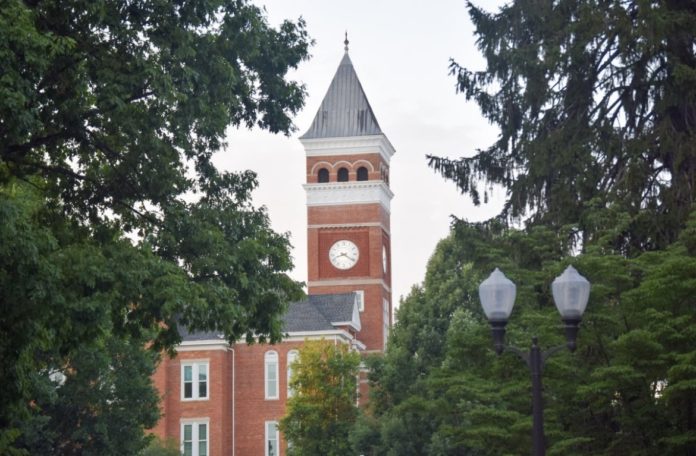Opinions expressed within are the property of their author and do not necessarily reflect the opinion of any other member or the Tiger Town Observer itself.
As football season is upon us, the air is filled with excitement for tailgates and days spent in Death Valley. This time of year, students spend a great deal of their Clemson experience taking in the sun in the amphitheater, kayaking Lake Hartwell, or cheering on the tigers together from the Hill. These are the things that make us a community – the fun stuff – yet amidst the excitement, there is a profound concern looming. Where in all this do we as students give back to the community we are a part of? Community service is a piece of the Clemson Experience we often overlook, and it is of great question how we can bring it to the forefront of our minds.
The backsliding of Clemson’s service-oriented community culture is tremendous. Even on the simple level of assisting freshman move in, volunteer service opportunities are now limited or under-advertised by the University. South Carolina ranks just 39th in the nation for college students volunteering. The recent removal of the Clemson Home Move-In volunteer program displays this lack of service. Compared to other schools, Clemson’s closest neighbors, Anderson and Southern Wesleyan, continue to offer similar volunteer services to their campus communities. Southern Wesleyan offers a volunteer move-in service that is comparable to, if not more extensive than, the service Clemson has done away with. Anderson University places such an emphasis on service that they extend their efforts to address food insecurity in the surrounding community as well.
It is undeniable that our generation of students has a desire to improve the world. The benefits of realizing this desire are numerous both now and later in life.
According to the University of Maryland’s School of Public Policy, fondly dubbed the “Do Good Institute,” while our generation of college students are the most likely to want to improve our world, we are also the least likely to take direct action through service or volunteering. A 2016 survey asked entering college students about the personal objectives they consider to be “very important” or “essential”. Reports showed the percentage of incoming college students who agreed “helping others who are in difficulty” is essential reached a 51-year high. A remarkable number of students also emphasized the importance of “becoming a community leader.”
If it is clear that the want for service is present, what can be done to facilitate greater community service? What can be done to encourage community service in regard to Clemson’s campus?
Other universities have implemented courses to encourage students to take on a service project. These are meant to tie them to their new community, encourage future volunteering, or act as a final way to give back to their college community as students graduate. Many colleges also require a senior portfolio that could showcase service as well.
From an organizational standpoint, the University should provide greater education on and connectivity to the standing community service opportunities and organizations. As the expenses and struggles of college life grow by the year, there is more to be done to support our fellow tigers. Currently, the PAW Pantry has 17 volunteers, six of which are on the executive staff, and the rest split between pantry or drop-off volunteers. This number could grow tremendously with the proper push. The desire to serve is already within the student body; it is simply a matter of honing it by connecting students to resources.
Encouraging and incentivizing service in the student body is a step Clemson needs to take if it wishes to fulfill its goal of shaping its students for the better. It is written into the very purpose of Clemson itself to cultivate individuals who connect to their communities and serve them readily: “The University also is committed to the personal growth of the individual and promotes an environment of good decision making, healthy and ethical lifestyles, and tolerance and respect for others. Our distinctive character is shaped by a legacy of service, collaboration, and fellowship forged from and renewed by the spirit of Thomas Green Clemson’s covenant.”
When we properly fulfill this mission, we will grow stronger as a body – together.
If you would like to learn more about service opportunities in Clemson and the broader community, connect with Clemson’s Paw Pantry HERE, the Center for Student Leadership and Engagement HERE, or a general list of service opportunities across campus and the upstate HERE or HERE. *








